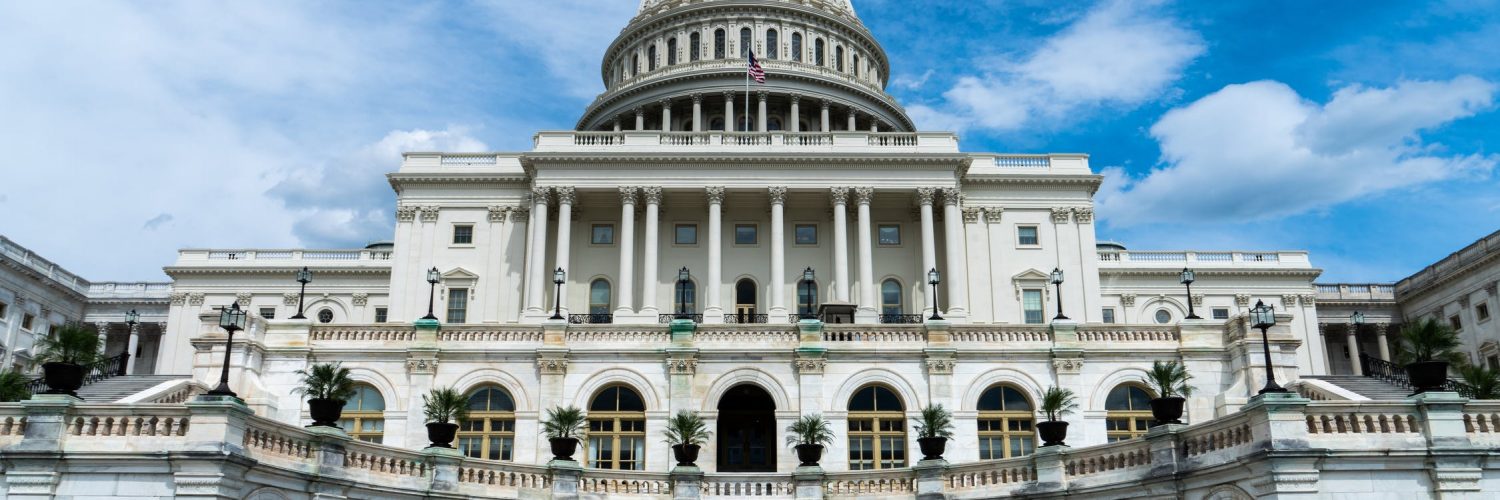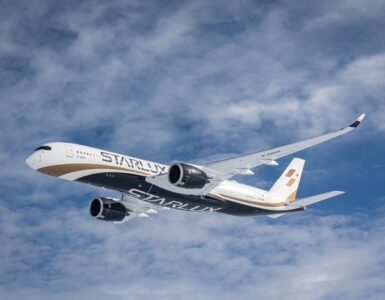The nation’s largest business advocacy group, the U.S. Chamber of Commerce, launched a new virtual dialogue series this week designed to bring national lawmakers from both sides of the aisle together on issues of importance to the business community and economic recovery.
The goal is not only to discuss topics but to identify opportunities for consensus, examine and explain legitimate policy differences, and pursue pathways to compromise and meaningful solutions, said Neil Bradley, the chamber’s executive vice president and chief policy officer, who moderated the first event Tuesday.
“We will spotlight elected officials who demonstrate the courage to work across the aisle to get things done and, in doing so, show that civility, consensus, and bipartisan cooperation still exist in Washington,” Bradley said.
Leading Democrat and Republican talk infrastructure
The Chamber kicked off the new series, Common Grounds, with a visit from a leading Democrat and a leading Republican on the House Committee on Transportation and Infrastructure. They talked about what’s ahead for infrastructure, a top priority for the business community.
Featured speakers, Rep. Seth Moulton (D-MA) and Rep. Rodney Davis (R-IL), spoke about their commitment as colleagues and friends who are working together to push forward a bipartisan package to update the nation’s highways, bridges, water facilities, transportation systems, and other infrastructure.
Gas tax outdated
Efforts to pass a comprehensive infrastructure package have consistently failed over the past few years due to partisan gridlock. Attempts to raise the gas tax to fund projects through the Highway Trust Fund also fail year after year. Meanwhile, the tax is becoming insufficient as a funding source for highways as electric vehicles are moving to the forefront of society, they said.
Davis said other means for funding could include public-private partnerships. Moulton said that age-old subsidy programs could be revamped to find more efficient uses.

Extreme partisanship biggest threat to progress
Both voiced optimism about moving forward meaningful legislation.
Rep. Davis, who has served in Congress since 2013, said it will require building consensus with members who aren’t focused on division. In recent years, infrastructure bills with large bipartisan support have failed because of a growing contingent of extremists in political office, he said.
“You have to have a willingness to get to know your colleagues on the other side of the aisle. It’s a lot more difficult when many members are elected just from the far right and the far left,” said Davis, who ran on a platform of bipartisanship.
“We all have to represent our different districts. But good policy looks for a win for everyone,” he said.
Davis said he focuses on finding lawmakers like Moulton he can work with, not against.
“Ultimately that’s better for the American people. I think people have had enough of Congress just convening to bicker. They actually want Congress to get things done,” Davis said.
Davis and Mouton both are pushing forward measures to do just that, they said.
Upgrade infrastructure via public-private partnerships
Davis recently introduced a bipartisan bill with Rep. Earl Blumenauer (D-OR) to help pay for a modernization of the nation’s transportation infrastructure, which faces a funding gap of more than $1.1 trillion by 2025, according to the American Society of Civil Engineers.
The bill, the Building United States Infrastructure and Leveraging Development Act (BUILD Act), would double the national limitation amount for qualified highway or surface freight transfer facility bonds from $15 billion to $30 billion for road, rail, bridge, and freight improvements through public-private investment partnerships.
High speed rail plan for global competitiveness
Rep. Moulton has introduced a package that would emphasize high speed rail to improve America’s global competitiveness.

“We’ve got to make sure we have a forward thinking infrastructure that will build for the next century,” said Moulton, who has served in Congress since 2014. “When we’ve done that in the past, it’s benefited everyone in America.”
Moulton introduced legislation that calls for investing $205 billion over five years for high speed rail. The American High-Speed Rail Act would create at least 2.6 million direct American jobs, increase connectivity and inclusivity in communities, and modernize the transportation system, which lags behind many other developed nations, he said
Modern infrastructure creates equity
Both representatives said modern infrastructure brings more than new roads and bridges. Davis said it can improve communities that have “problems with equity.” Moulton said high speed rail can increase connectivity and inclusivity.
“When you have high speed rail it connects communities that are kind of left out right now,” Moulton said. “New transportation technologies bring out communities together and make us more inclusive.”
U.S. Chamber push for bipartisanship The Common Grounds series builds on the U.S. Chamber’s Bipartisanship and Leadership Awards program, which recognizes members of Congress who demonstrate bipartisan leadership and constructive governing. In many cases, Common Grounds events will be hosted in partnership with local and state chambers of commerce across the country. The event series was first announced during the U.S. Chamber’s signature annual event, the 2021 State of American Business.
















Add comment